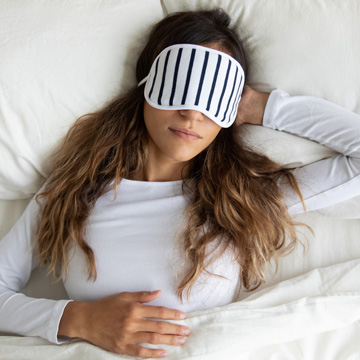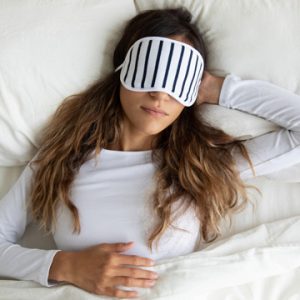
 San Francisco, Marin, and Oakland, CA
San Francisco, Marin, and Oakland, CA
Whether your partner complains daily about your snoring or your family is concerned about witnessing you gasping for air while sleeping, untreated sleep apnea can negatively affect your health. Sleep apnea is a medical condition known as OSA or obstructive sleep apnea, which causes snoring and pauses in breathing throughout the night. While sleeping, your jaw and throat relax, causing a collapse of soft tissue, which blocks your airway. For more details, our Bay Area airway dentists at Glen Park Dental are sharing eight ways to tell if you have sleep apnea.
Snoring
As the most common symptom related to sleep apnea, snoring can be a critical indicator that you may suffer from a sleep-breathing disorder. Intermittent snoring may not be related to sleep apnea, but chalked up to allergy season or fighting a cold. However, the sound of your snoring changes as it relates to sleep apnea. Your snoring may be very loud and occur almost continuously.
Dry Mouth
Obstructive sleep apnea is sometimes tricky to diagnose, but if you wake with a dry mouth and sore throat, you could be suffering from OSA. The reason for your dry mouth is because when you snore, you breathe through your mouth, resulting in a dry mouth and irritated throat.
Headaches
Regular headaches, or headaches that continuously occur in the morning, could be caused by a lack of oxygen in your brain. The lack of oxygen happens when your mind consistently wakes up from the sleep apnea. The lower level of oxygen could cause widened blood vessels resulting in vascular headaches. If you have been suffering from problems, your primary care provider can identify and address the condition, including sleep apnea.
Daytime Drowsiness
Noticing your daily activities that seemed natural to become more complicated could be a sign of sleep apnea. If you have trouble concentrating on everyday tasks or increasingly become forgetful, you could be suffering from sleep deprivation-induced by sleep apnea. When suffering from sleep apnea, as your airway becomes obstructed, your brain must wake your body to get it to breathe, thus disturbing your sleep cycle. Extensive sleep apnea cases may cause sleep interruptions to occur hundreds of times per hour, and you may never consciously wake up.
Jaw Clenching
Clenching your jaw is often a sign of high stress or anxiety. Clenching your jaw and grinding your teeth, otherwise known as Bruxism, can cause significant damage to your teeth and jaw. By clenching and grinding your teeth, you severely weaken the tough enamel, potentially leading to a cracked or broken tooth. Your friendly dentists in Oakland at Glen Park Dental understand that stress and anxiety are the main culprits for jaw clenching. However, there is a link between Bruxism and sleep apnea. Both conditions link together through some everyday health and lifestyle choices, such as being overweight, smoking, and having a misaligned bite.
Anxiety
Anxiety comes in many forms and affects everyone differently. However, loss of sleep or inadequate sleep may cause cognitive issues increasing stress. With sleep deprivation caused by anxiety, you could feel sleepy and drink caffeinated beverages to keep you awake. Unfortunately, drinking too many carbonated drinks, coffee, energy drinks, or other sugary drinks often lead to increased anxiety levels.
Weight Gain
When you suffer from sleep apnea, weight loss can become more difficult. With a healthy diet and regular exercise, you should experience positive results. However, if your body is not getting the rest it needs, it could affect your metabolism resulting in a decrease in your ability to burn fat.
Chronic Health Issues
Sleep apnea can cause additional health concerns if the condition is undiagnosed and inadequately treated. Some of the common risks posed by sleep apnea are heart disease, gum disease, tooth loss, high blood pressure, diabetes, acid reflux, and make you more susceptible to certain types of cancer.
Sleep Apnea in Marin, Oakland, and San Francisco, California
Sleep apnea is a severe condition that could lead to further health complications if untreated. Although you must get a sleep study for an official diagnosis, it could help your leading sleep apnea dentists in San Francisco at Glen Park Dental treat your condition. If you have been told you snore or wake up gasping for air, feel free to call Glen Park Dental at (415) 585-1500 or request a consultation online.


